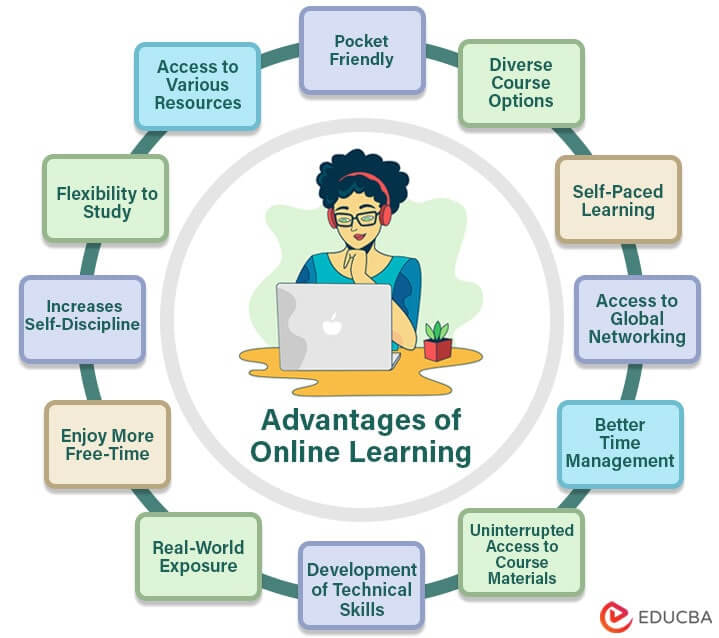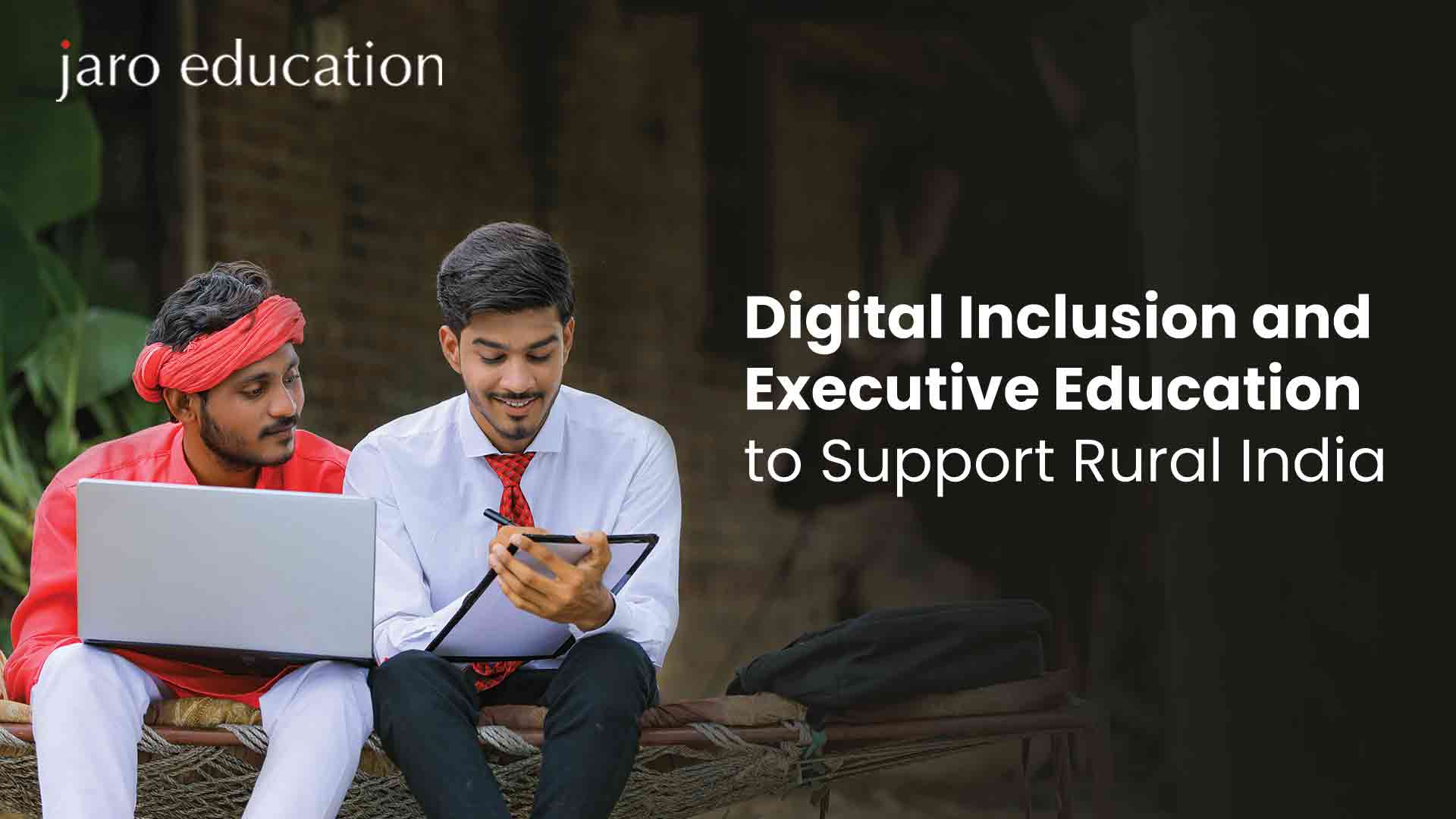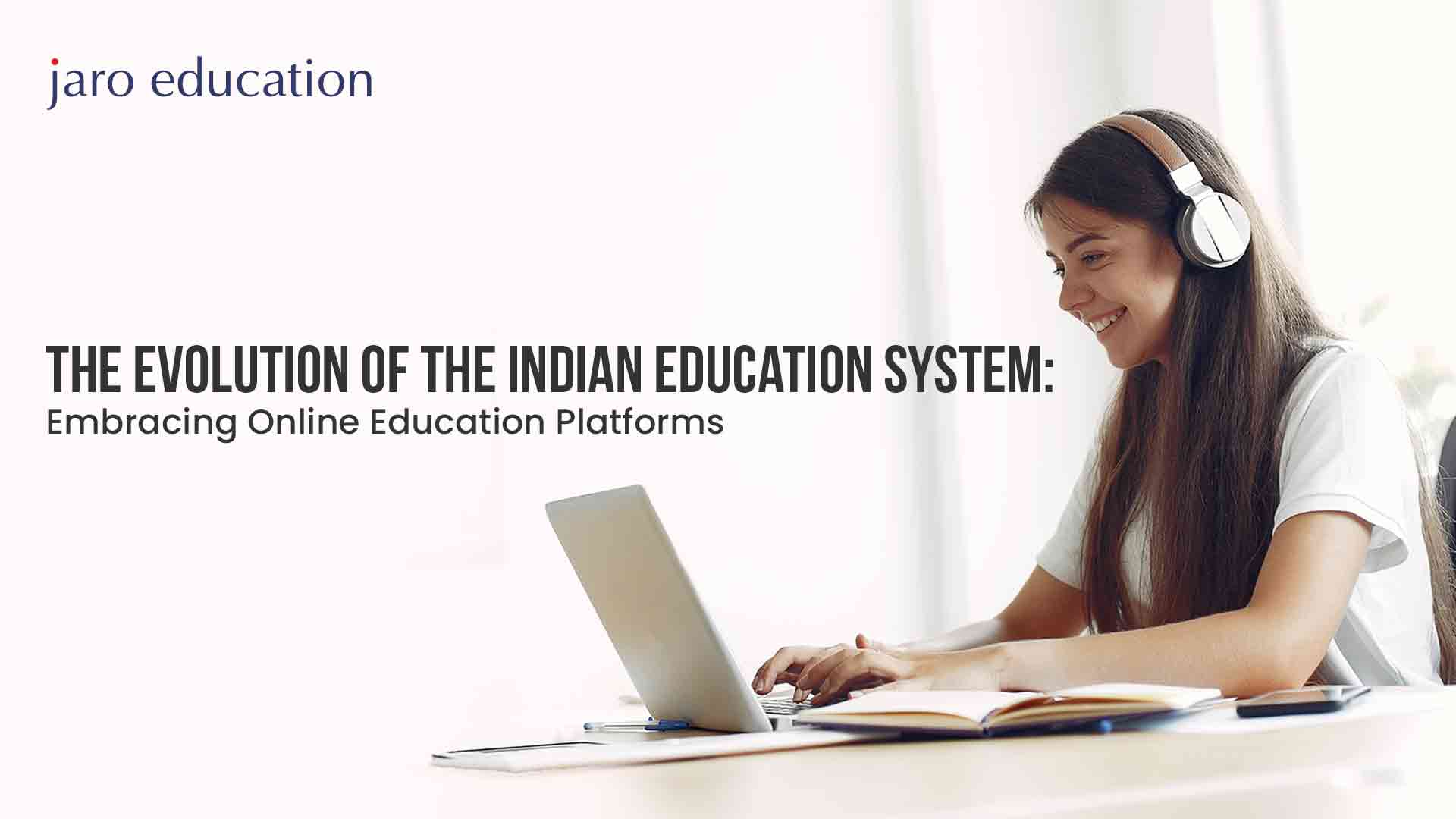Empowering Youth in India: Unlocking Bright Futures with Revolutionary Online Learning
Table of Contents

- jaro education
- 12, August 2024
- 4:00 pm
Introduction
International Youth Day, celebrated on August 12th each year, is a global observance dedicated to recognizing and uplifting the potential of young people around the world. This day serves as a powerful reminder of the critical role youth play in shaping the future of our societies. In India, where a significant portion of the population consists of young individuals, the focus on youth empowerment through various means, including education, is of paramount importance.
In recent years, online learning has emerged as a revolutionary tool, offering unprecedented opportunities for upskilling and personal growth. This mode of education is not just about convenience but about opening doors to quality learning experiences that can significantly enhance youth empowerment in India and the skill sets of young people. As we delve into how online learning is transforming education in India, we’ll explore its role in youth empowerment and its potential to unlock bright futures for countless individuals.

Understanding Youth Empowerment
Youth empowerment refers to the process of enabling young people to take control of their own lives, make informed decisions, and contribute actively to their communities. It encompasses the development of skills, confidence, and opportunities that empower individuals to influence their environment positively. Empowered youth are crucial for societal progress as they bring fresh perspectives, innovation, and energy to various sectors.
Youth empowerment in India through education is particularly transformative. It equips them with the knowledge and skills necessary to tackle challenges, pursue their goals, and drive change. Education fosters critical thinking, creativity, and problem-solving abilities, all of which are essential for personal and professional success. When young individuals are given the tools to succeed, they can uplift themselves and their communities, contributing to broader societal advancement.
Education serves as a powerful catalyst for transformation and thus youth empowerment. By providing young people with access to quality education, we open doors to numerous opportunities that might otherwise be inaccessible. This youth empowerment through education helps bridge gaps in socio-economic status, reduces inequality, and promotes social cohesion.
Educational youth empowerment in India also extends beyond individual benefits. As young people gain knowledge and skills, they are better equipped to address community issues, engage in civic activities, and contribute to local and national development. For instance, educated youth can drive entrepreneurship, engage in innovative projects, and become leaders who inspire and mentor others. This ripple effect of youth empowerment fosters a culture of continuous improvement and collective progress.
The Role of Upskilling in Youth Empowerment
Upskilling refers to the process of acquiring new or enhanced skills to stay relevant and competitive in a rapidly evolving job market. As industries and technologies advance, the demand for specific skills changes, making continuous learning essential. For young people entering the workforce, upskilling is a critical strategy for career advancement and job security.
In today’s competitive job market, possessing up-to-date skills can significantly impact employability and career growth. Upskilling allows individuals to adapt to new tools and technologies, meet evolving job requirements, and seize emerging opportunities. It helps bridge the gap between academic knowledge and practical, real-world skills that employers seek. Furthermore, upskilling can lead to higher job satisfaction and increased earning potential, as individuals who continuously enhance their skills are often better positioned for promotions and career development.
Acquiring new skills through upskilling programs can be transformative for young professionals. It enables them to diversify their skill sets, making them more versatile and valuable in the job market. For instance, learning new programming languages, mastering digital tools, or gaining expertise in emerging technologies can set candidates apart from their peers.
Upskilling also provides the flexibility to pivot between different career paths or industries. As the job landscape evolves, individuals with a broad skill set can more easily transition into new roles or sectors. This adaptability is crucial in a world where job roles and industry demands are constantly changing. By continuously learning and adapting, young people can not only secure better job opportunities but also position themselves for long-term career success and personal fulfillment.
The Evolution of Online Learning in India
Online learning in India has undergone significant evolution over the past decade. Initially, it was seen as a niche option primarily for distance education. However, with the advent of advanced technology and increasing internet penetration, online learning has become a mainstream mode of education.
The growth of online education platforms has been driven by the need to make quality education more accessible, especially in remote and underserved areas where youth empowerment in India is needed. The rise of affordable internet connectivity and mobile technology has further accelerated this growth. Today, online learning offers a wide range of courses and programs, from foundational education to specialized professional skills, catering to the diverse needs of students across the country.
Technology plays a pivotal role in transforming online education and thus youth empowerment. Advanced learning platforms leverage technologies such as artificial intelligence, virtual reality, and interactive multimedia to enhance the learning experience. These tools provide immersive and engaging educational environments that can accommodate different learning styles and preferences.
Moreover, online learning platforms offer unparalleled flexibility. Students can access course materials anytime and from anywhere, allowing them to balance their studies with other commitments. This flexibility is particularly beneficial for working professionals, parents, and those with geographical constraints. By breaking down barriers to education, technology is making it possible for more young people to pursue learning opportunities that were previously out of reach, taking a closer step toward youth empowerment.
Key Benefits of Online Learning for Youth
Online learning offers a transformative approach to education, providing numerous benefits that cater specifically to the needs of today’s youth. By leveraging technology, online education breaks down traditional barriers, offering new opportunities for young learners. This section explores the major advantages of online learning, emphasizing how it enhances accessibility, personalization, and overall educational experience and youth empowerment.
Accessibility and Flexibility
One of the most significant advantages of online learning is its ability to overcome traditional geographical and time constraints. In the past, accessing quality education often required traveling to physical institutions, which could be challenging for those living in remote areas or with busy schedules. Online learning platforms have revolutionized this aspect by making education accessible from virtually anywhere.
With online courses, students can access educational content at any time that suits them, eliminating the need for rigid class schedules. This flexibility is particularly beneficial for young people balancing studies with work or other commitments. It also ensures that those in remote or underserved regions, who might have limited access to educational facilities, can benefit from high-quality learning resources. This broad accessibility helps democratize education, allowing every student to pursue their academic and professional goals without geographical limitations.
Accessibility and Flexibility
Another key benefit of online learning is the ability to offer personalized and adaptable learning experiences. Traditional education systems often follow a one-size-fits-all approach, which may not cater to the individual needs and learning styles of each student. Online learning platforms address this issue by providing tailored educational experiences that adapt to each learner’s strengths, weaknesses, and preferences.
Through advanced technologies and data analytics, online platforms can track student progress and customize learning paths accordingly. For instance, if a student struggles with a particular topic, the platform can offer additional resources and practice exercises to help them improve. Conversely, if a student excels in a subject, they can be presented with advanced material to further challenge them. This level of personalization enhances learning outcomes and keeps students engaged by providing them with content that is relevant and suited to their unique needs.

*EDUCBA
Technological Innovations Enhancing Online Learning
The landscape of online education is continually evolving, thanks to rapid technological advancements. The emergence of innovative tools and technologies has significantly transformed the way education is delivered and experienced. These advancements have made learning more interactive, engaging, and effective, contributing to the growing popularity and effectiveness of online learning platforms.
Technologies such as artificial intelligence (AI), virtual reality (VR), and interactive multimedia are at the forefront of this transformation. They provide new ways to present information, interact with content, and engage with instructors and peers. These tools are not just enhancing the learning experience but are also setting new standards for what is possible in online education.
Artificial Intelligence (AI) is revolutionizing online learning and thus youth empowerment by enabling personalized learning experiences and automating administrative tasks. AI-powered systems can analyze student performance, predict learning needs, and provide tailored recommendations to improve outcomes. This level of customization helps ensure that each student receives support that is specific to their learning style and pace.
Virtual Reality (VR) offers immersive learning experiences that go beyond traditional educational methods. Through VR, students can explore virtual environments, conduct simulations, and engage in hands-on activities that enhance their understanding of complex concepts. For example, medical students can practice surgical procedures in a risk-free virtual environment, while history students can take virtual tours of historical sites.
Interactive platforms, including gamified learning environments and collaborative tools, foster greater engagement and motivation. Gamification incorporates game design elements into the learning process, making education more enjoyable and interactive. Collaborative tools enable students to work together on projects and discussions, fostering a sense of community and teamwork that enhances the learning experience.
The Future of Careers for Youth
The future of careers for today’s youth is undergoing a transformative shift, driven primarily by technological advancements and the growing influence of online education. Emerging career trends are heavily shaped by fields such as artificial intelligence, data science, cybersecurity, and digital marketing. These areas require a specialized set of skills that traditional education systems may not always be equipped to provide. This gap is where online education steps in, offering targeted courses and certifications that keep pace with industry needs.
In the dynamic job market of today, adapting to new career paths is not just beneficial but essential. Continuous learning and upskilling are critical for maintaining competitiveness and relevance. The traditional linear career trajectory is being replaced by a more flexible and adaptable approach. Professionals must now be prepared to pivot and acquire new skills throughout their careers to stay ahead. Online learning platforms are uniquely positioned to support this need, providing access to the latest knowledge and skills from anywhere in the world.
Jaro Education exemplifies this trend by offering a wide array of programs that align with current industry demands. These programs are meticulously designed to equip students with the practical skills and knowledge required to excel in modern careers. For instance, Jaro Education offers highly interdisciplinary courses in data science, digital marketing, and cybersecurity are particularly relevant, given the high demand for professionals in these fields. By focusing on real-world applications and hands-on learning, Jaro Education ensures that its students are job-ready and capable of meeting the challenges of a global job market.
The success stories of Jaro Education’s alumni are a testament to the effectiveness of its programs and their work toward youth empowerment. Graduates have gone on to secure positions in leading companies, leveraging the skills and knowledge they acquired through Jaro’s courses. These examples highlight the transformative impact that quality online education can have on an individual’s career trajectory, reinforcing the importance of continuous learning and upskilling.
The Future of Online Learning and Youth Empowerment
Looking towards the future, it is evident that online learning will continue to be a critical factor in youth empowerment. Predictions for future trends in online education point to an even greater integration of advanced technologies such as artificial intelligence, machine learning, and virtual reality. These innovations promise to enhance the learning experience, making it more interactive, immersive, and tailored to individual needs.
The potential impact of these advancements on youth empowerment is substantial. As online learning platforms evolve, they will offer increasingly specialized and industry-relevant courses. This evolution will enable young learners to stay ahead in the ever-changing job market. Continuous learning and upskilling will become not just advantageous but necessary, as the rapid pace of technological change demands the constant acquisition of new skills.
Institutions like Jaro Education will play a pivotal role in this evolving landscape. By continually updating their course offerings and incorporating the latest technological advancements, they ensure that students are well-prepared for future challenges and opportunities. The commitment to providing high-quality, relevant education will help bridge the skills gap and empower the youth to pursue successful careers.
Conclusion
In conclusion, empowering the youth through education is crucial for the future development of any nation. Online learning, with its accessibility, flexibility, and personalized approach, is revolutionizing how education is delivered and received. It plays a pivotal role in upskilling young individuals, enabling them to seize new opportunities and adapt to the evolving job market.
As we celebrate International Youth Day, it is important to recognize the transformative potential of online learning in youth empowerment. By embracing online learning and continuous upskilling, the youth in India can unlock bright futures filled with possibilities. Jaro Education’s contributions to this field, through its innovative programs and industry-aligned courses, underscore the importance of quality online education in empowering the next generation.
Young minds today have unprecedented access to educational resources and opportunities. With the right tools and guidance, they can build a better tomorrow for themselves and for the nation. It is our collective responsibility to support and encourage them in this journey, ensuring that they are equipped to navigate and thrive in the complexities of the modern world.
Frequently Asked Questions
Youth empowerment is crucial for several reasons:
-
- Economic Growth: Empowered youth contribute to a nation’s economy by entering the workforce with relevant skills.
- Social Development: Empowered youth participate actively in their communities, fostering social cohesion and progress.
- Innovation: Young people bring fresh perspectives and ideas, driving innovation in various sectors.
- Leadership: Empowered youth often become leaders, guiding others and shaping the future.
- Personal Growth: Empowerment helps individuals achieve personal goals, boosting confidence and self-worth.
Youth empowerment can be categorized into several types:
-
- Educational Empowerment: Providing access to quality education and learning resources.
- Economic Empowerment: Equipping youth with skills and opportunities for employment and entrepreneurship.
- Social Empowerment: Encouraging active participation in social and community activities.
- Political Empowerment: Engaging youth in political processes and decision-making.
- Cultural Empowerment: Promoting cultural identity and expression.
- Psychological Empowerment: Building self-esteem, confidence, and resilience.
Empowering youth can be achieved through various methods:
-
- Education and Training: Providing access to quality education and vocational training.
- Mentorship Programs: Connecting youth with mentors who can offer guidance and support.
- Skill Development: Offering programs that teach practical and marketable skills.
- Access to Resources: Ensuring youth have the necessary resources, such as technology and financial support.
- Encouraging Participation: Involving youth in community and decision-making processes.
- Creating Opportunities: Facilitating opportunities for employment, internships, and entrepreneurship.
The 3 C’s of youth empowerment typically refer to:
- Competence: Developing the skills and abilities necessary to succeed in various areas of life.
- Confidence: Building self-belief and assurance in one’s capabilities.
- Connection: Fostering relationships and networks that provide support and opportunities.
These components are essential for enabling young people to take control of their futures and make meaningful contributions to society.












